Saturday afternoon I found myself in a familiar position: a non-Catholic in a place of honor and attention in a Catholic church. With pictures taken beforehand:
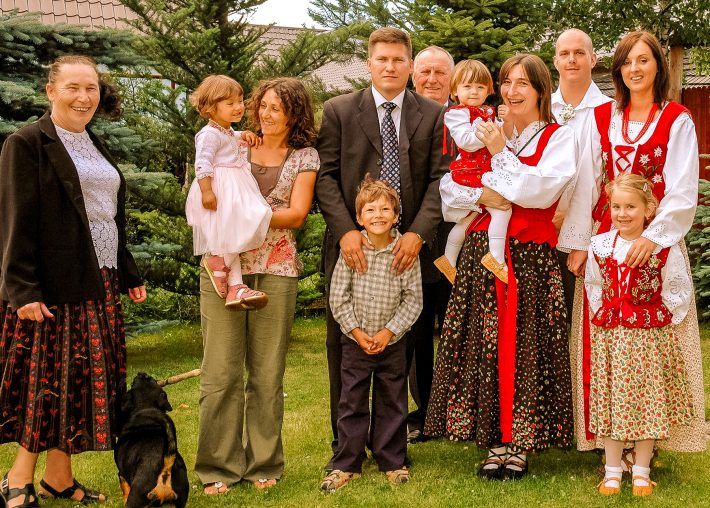
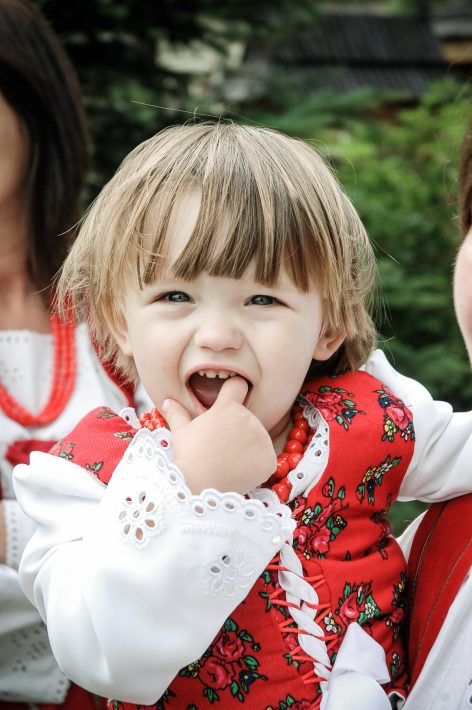
L is now officially Catholic.
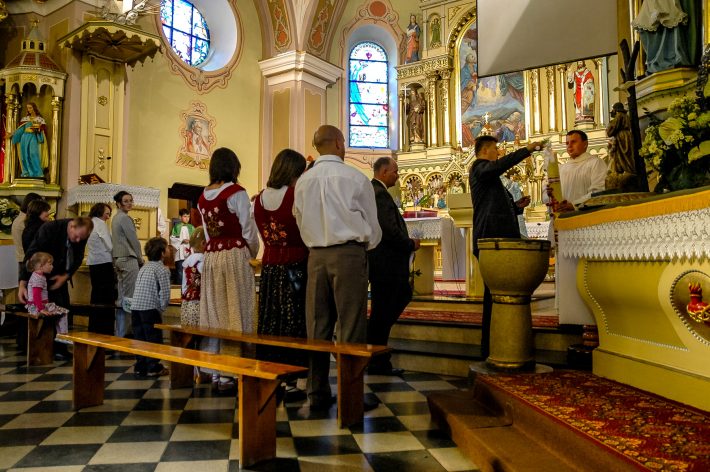
She fell asleep immediately the actual ceremony, much to our relief: she’d begun barking like a dog and begging to get down just before the baptism.
We made a friend before going into the church — an elderly lady whom no one knew but who acted as if she’d known all of us our entire lives.
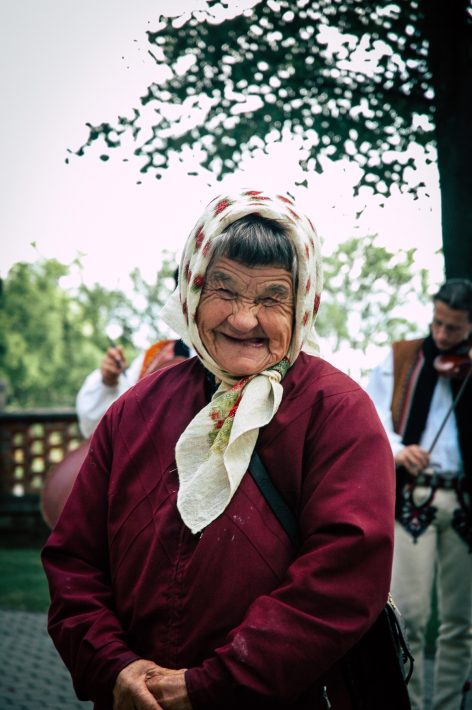
With her speaking the Orawian dialect with a tooth-free mouth, I had no idea what she was saying at any point in the conversation. It was like arriving in Orawa again.
After the baptism, Dziadek took everyone out to dinner.
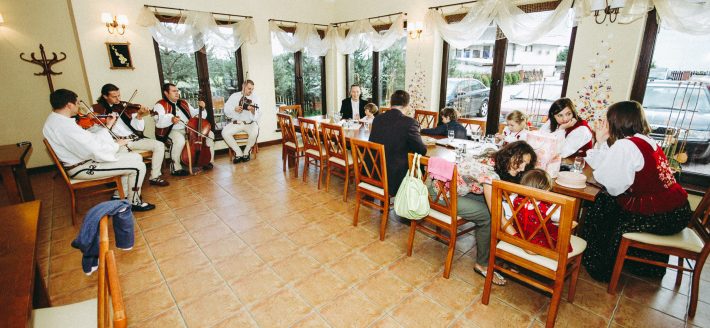
K and L’s godmother, D, danced a little for us.
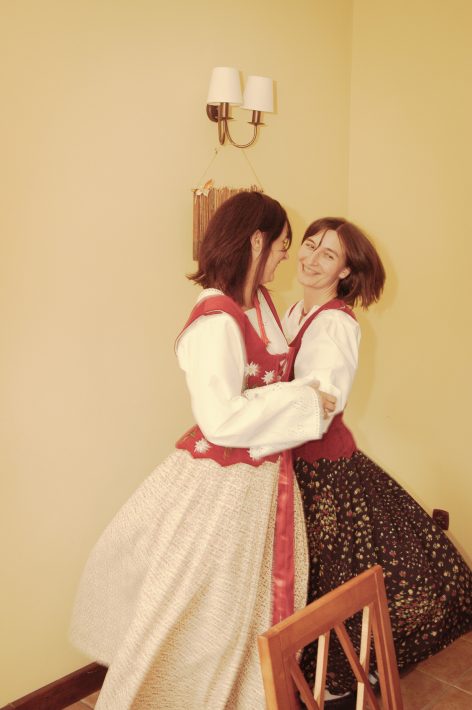
Then it was back to the house a typical Polish evening with family and friends: more food, alcohol, talking, joking.
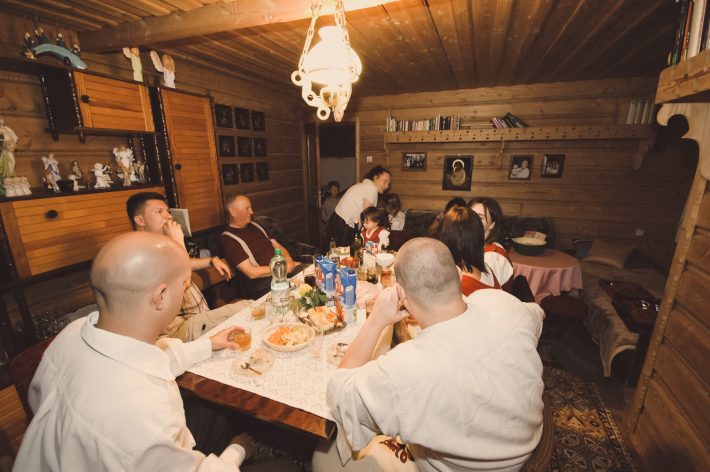
Everyone expresses such surprise when we tell them about teetotalers and the lengths to which some American Christians will go to avoid “sin” (card playing, dancing, etc.). “Poor people,” D’s husband replied. He took it especially hard — he was the designated driver.
An odd thing about Polish designated drivers: while on the whole Poles drink more alcohol than Americans, Polish designated drivers are much more scrupulous about drinking than their American counterparts. I’ve known of many “designated drivers” in America who will drink one small beer, knowing that they’ll still be within the legal limits. Polish designated drivers don’t drink anything. I had to twist G’s arm to get him to take a sip of the whiskey we’d brought Dziadek.
This teetotalism makes even more sense in Slovakia, where to exceed the legal limit, one needs only 0.0001% BAC. In other words, no alcohol in the system at all. Which is good, if you’ve ever seen how Slovaks drive.
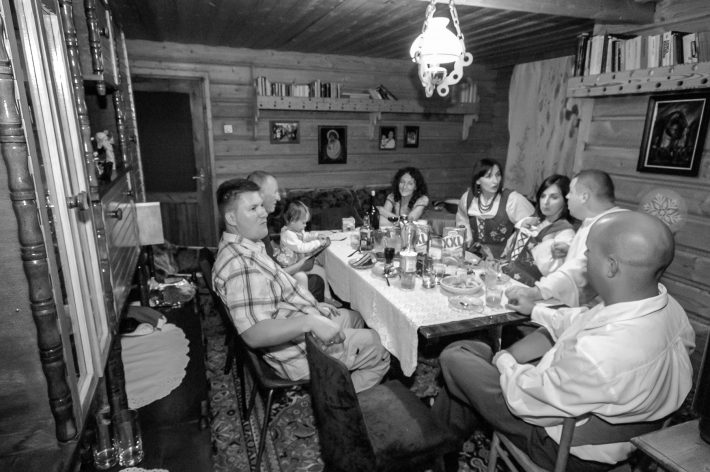
K and the girls in the family insist that we sat talking until 1:30 — not bad for Dziadek and Babcia, who usually go to bed at or before nine.
Next day, more celebrations. We began by playing around in the yard.
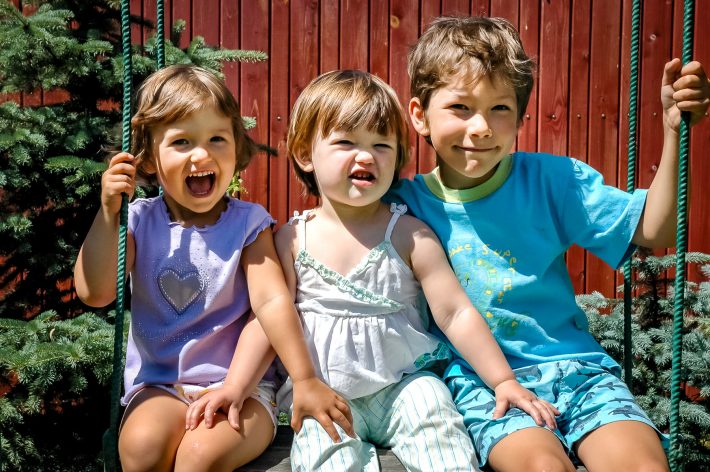
Afterward, we went back to Lipnica for Shepherds’ Holiday — a yearly festival that celebrates regional folk music and culture.
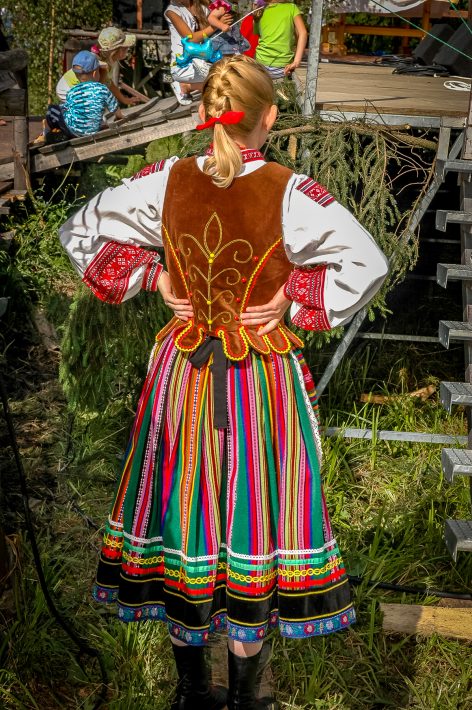
This year it included a mock wedding.
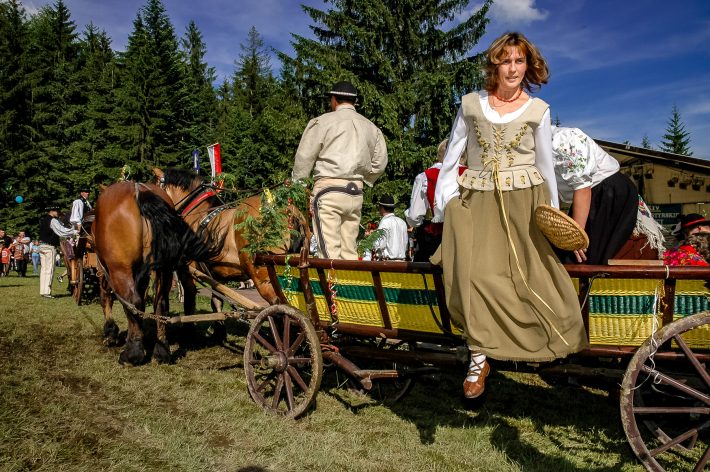
And it ended with a traditional climbing of the May Pole. The safety harness, the emcee explained, was a new addition for EU compliance. Poland is in the EU, and that means certain traditions change — sort of.
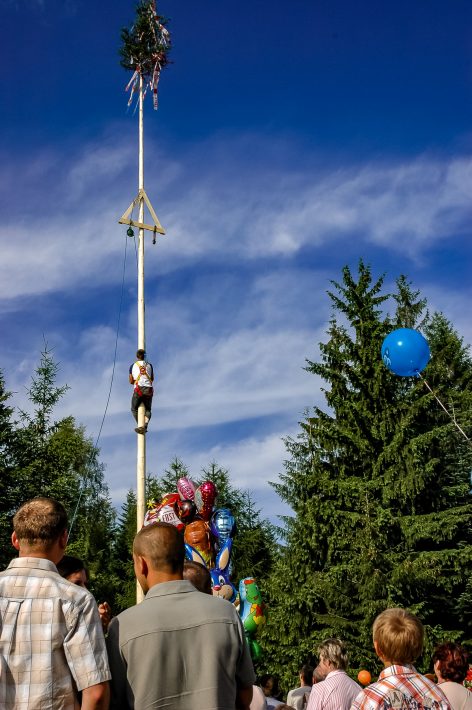
But it wasn’t only for the music I went. I was hoping to meet a few former students and co-workers. I ran into the superintendent of schools and chatted with him for a few moments, and I met a few students. So odd to see them as adults now. One started speaking to me in the familiar voice (“Ty” instead of “Pan”), then stopped short.
“How should I refer to you?” she asked.
“‘Ty’ is fine,” I replied. “It makes me feel less old than ‘pan.'”
Another explained that he was working in Denmark.
“How’s your Danish?” I asked.
“I don’t speak a word of Danish!” he laughed. “I use the English you taught me.” He used “pan,” but he was always a very respectful young man.
It’s rewarding to know that something I did is having such far-reaching effects. I almost told the young man — who, despite being polite, was something of a slacker — “I’ll bet you wish you’d done your homework more often,” but he might have taken it seriously.
We left around 6:00, when the girl was growing tired, not to mention her parents. We walked back down the parking lot — undoubtedly the most beautiful parking lot I’ve ever seen.
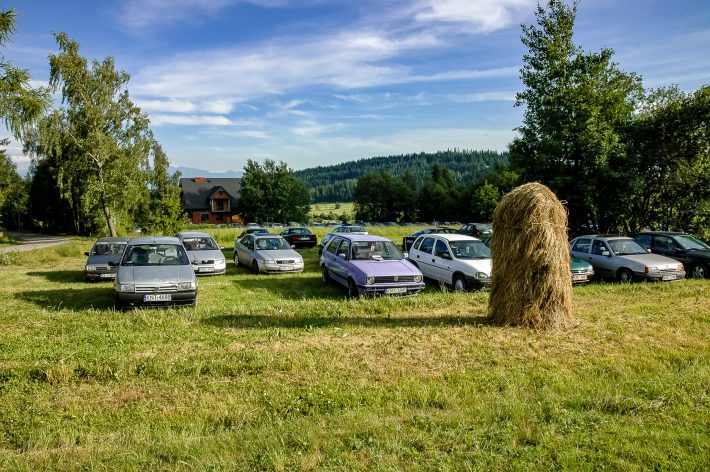
We returned home and returned to our front-yard games.
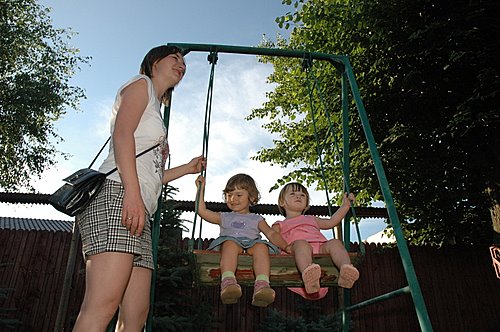
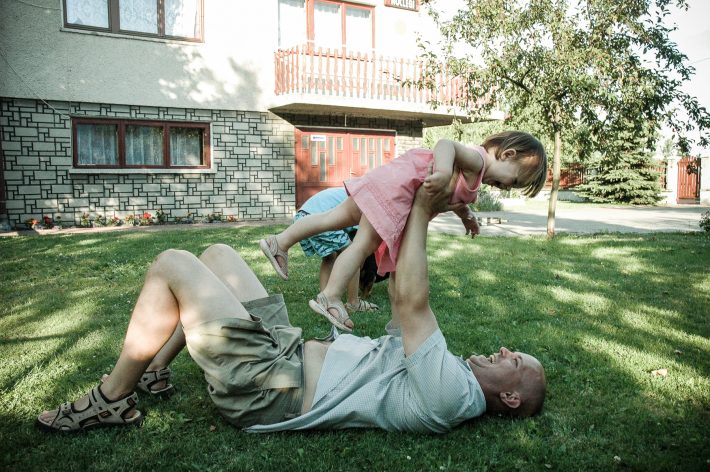
It was about this time, when the sun was casting long shadows and giving everything a golden glow, that Babcia suggested we take the kids for a walk.
“Maybe they’ll get to see some cows,” she said.
There were no cows, but the light was incredible.
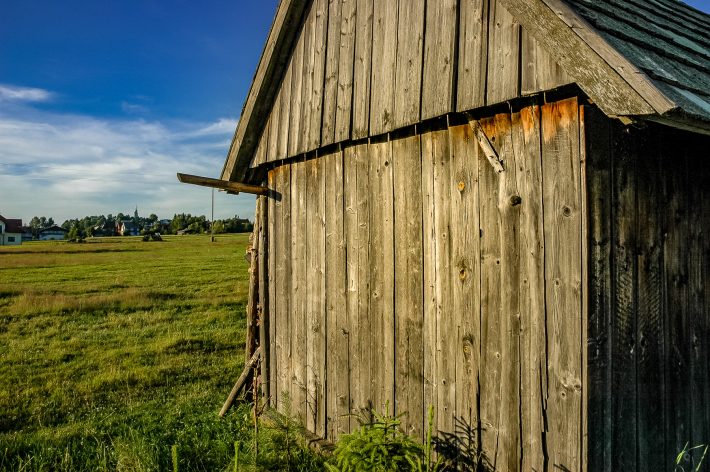
I went ahead and took a few pictures.
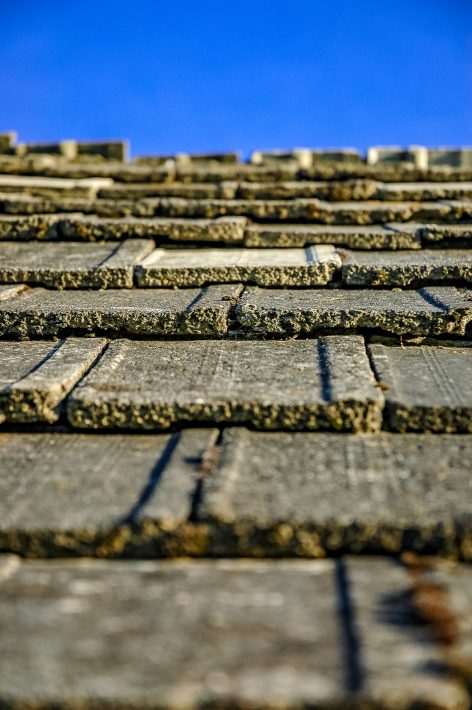
Then K and L came running at me.
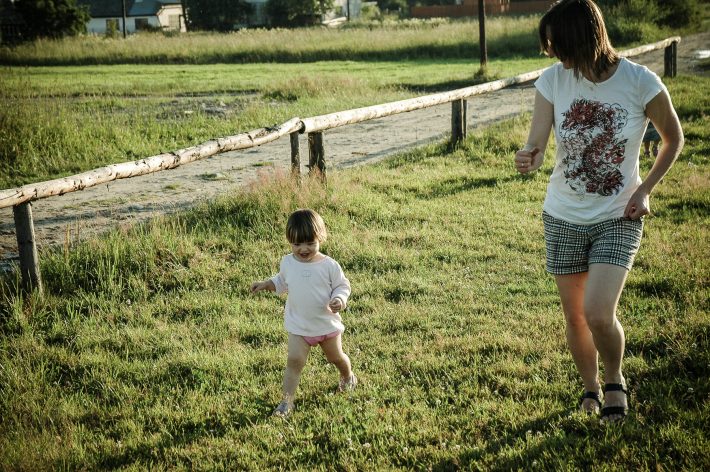
We took the kids to a field with freshly-mowed hay and tried to take some candid portraits.
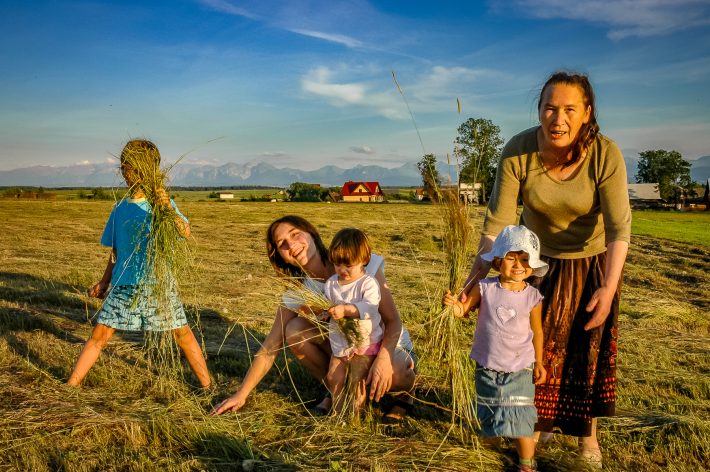
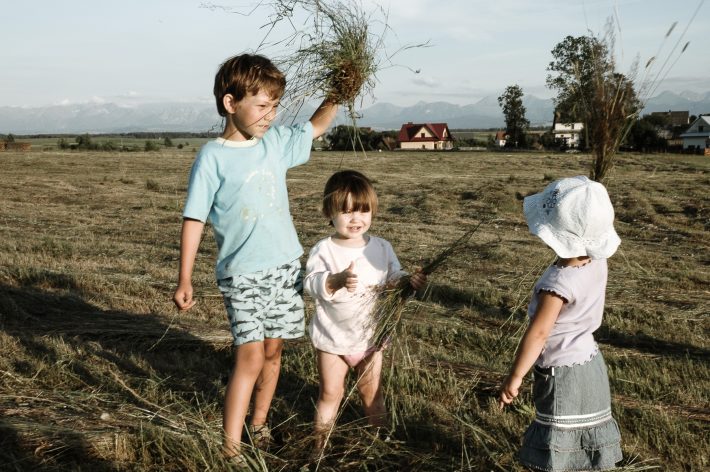
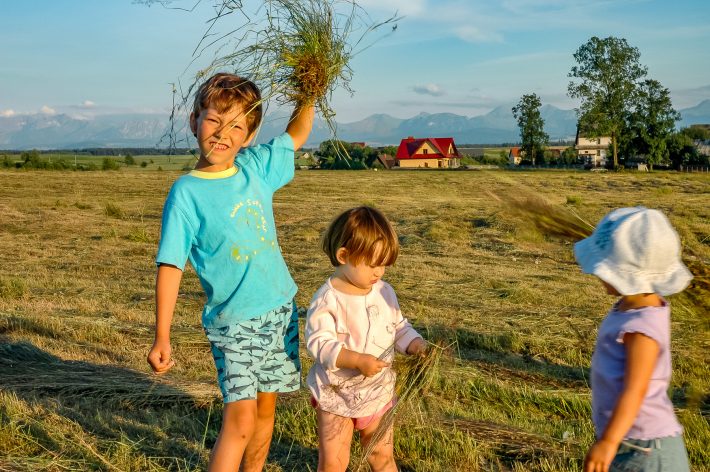
With the Tatra Mountains in the background and the children’s laughter, it was difficult to imagine a more idyllic setting.
Who couldn’t sit and look at a view like this for hours daily:
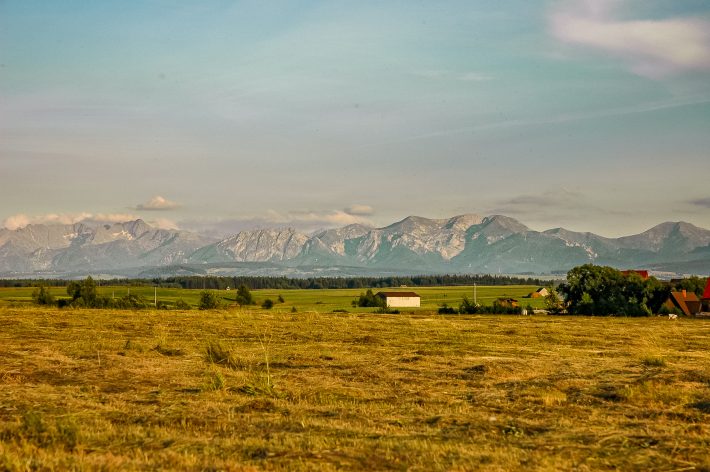
On the way back, our freshly Catholicized little girl got sleepy.

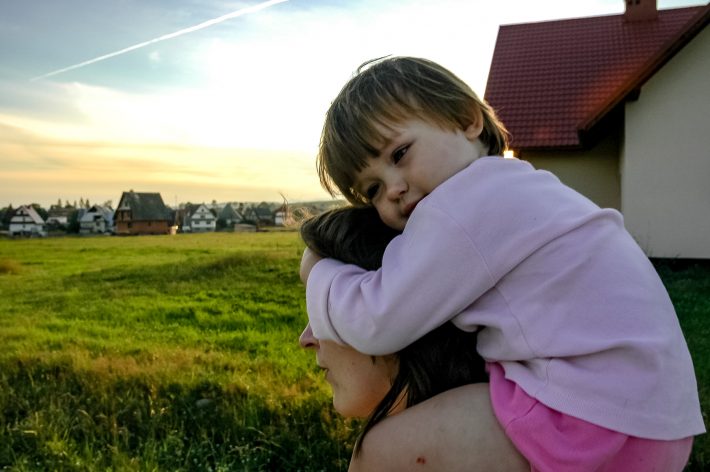
We stopped at a little neighborhood chapel on the way back.
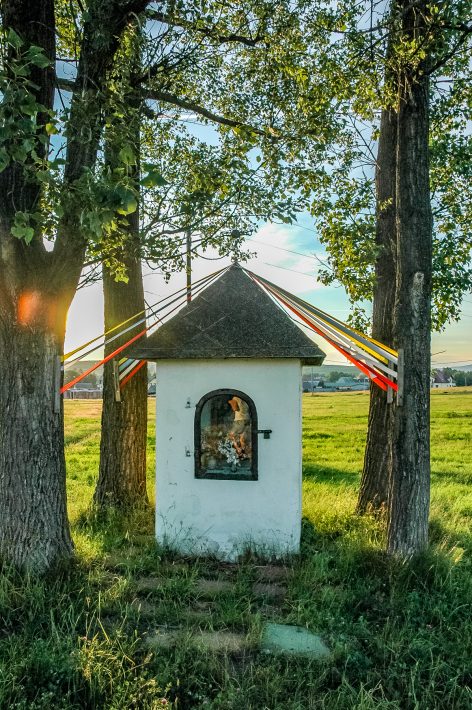
During summer evenings local residents meet at the small chapel to pray.
It also provided a depressing reminder of how Poland is changing. Scratched into the side of the chapel were two common examples of Polish profanity. (I won’t provide a translation. If you know someone who speaks Polish what it means, they’ll probably tell you. Hesitantly, if they’re from an older generation.)
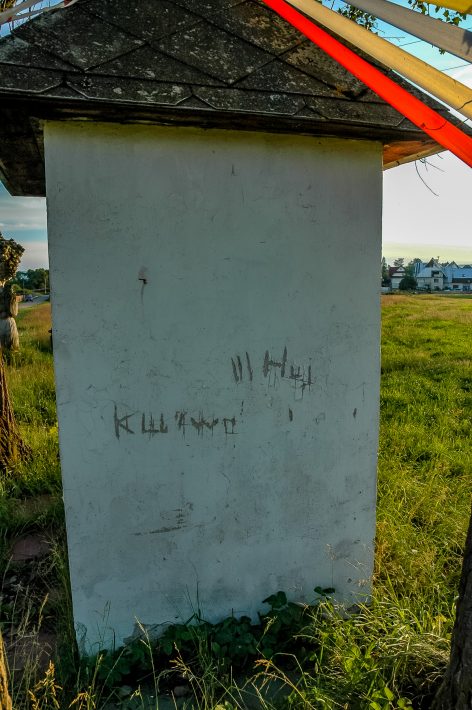
It seemed profane in the truest sense of the word’s meaning. Childish curse words scratched on an object held sacred by many.
Finally, a different kind of sacred:
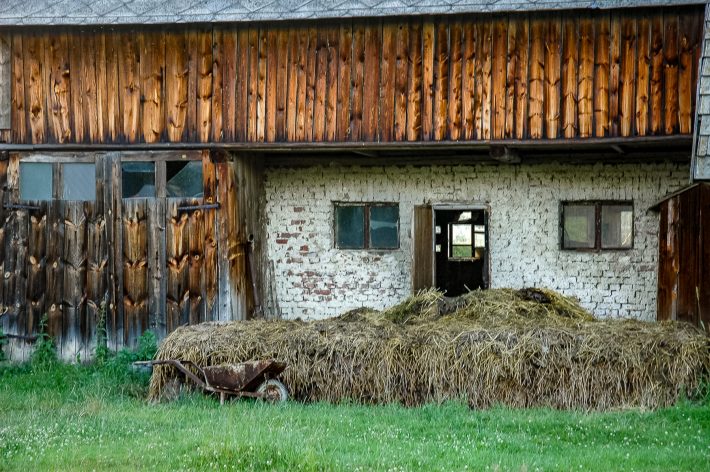
That pretty much covers Saturday and Sunday. Today — well, I’ll put that off a little bit and return to more important matters here at hand.